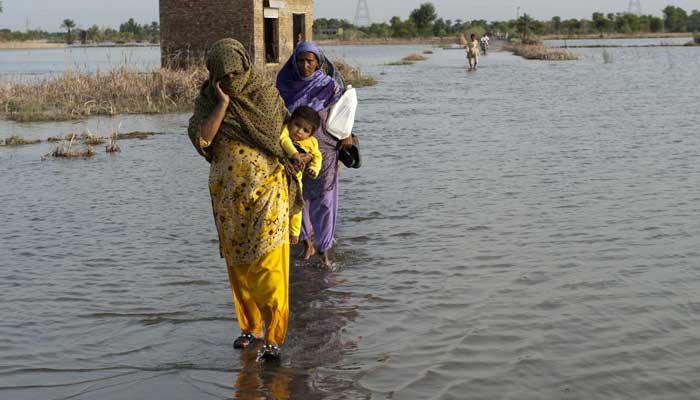What will it take to accelerate the SDGs?
The promise of Agenda 2030 can be realised, and UNDP is determined to walk this path alongside people and govt of Pakistan
September 09, 2025

One year ago, through our Development Advocate Pakistan publication on the UN Summit of the Future, the United Nations Development Programme (UNDP) called for a collaborative, future-ready, transformative development approach to get back on track for the 2030 Agenda. Yet progress remains uneven.
Globally, only 35% of Sustainable Development Goals (SDGs) are on track or making moderate progress, strained by geopolitical tensions and fractured multilateralism, widening inequalities, protectionist trade measures, climate pressures, and fragile governance.
Pakistan's development largely reflects this global trend: making noticeable gains in macroeconomic stabilisation and reform, clean energy, and infrastructure connectivity, yet remaining vulnerable to climate shocks and recurring natural disasters, dipping development indicators, and geopolitical stressors.
With just five years remaining until 2030, the question is no longer whether acceleration is needed, but how quickly Pakistan can pivot towards bold, transformative action to deliver its SDG promise.
The 80th session of the United Nations General Assembly (UNGA 80), aptly themed "Better together: 80 years and more peace, development and human rights," comes at a critical moment. Global leaders will gather in New York to renew their commitment to multilateralism and shared action for people and planet. For Pakistan, this is also a time to take stock — to renew political commitment, assess challenges, seize opportunities, and identify tipping points that can accelerate human development.
A decade ago, Pakistan demonstrated global leadership by becoming one of the first countries to unanimously adopt the SDGs in Parliament, supported by robust policy frameworks and mechanisms. That early ownership remains a powerful asset.
In UNDP’s recent high-level SDG Policy Dialogue with government and Parliament, consensus emerged around three game-changers: sharper development priorities, stronger data systems, and innovative financing. Together, these pathways show that acceleration is possible if Pakistan seizes the moment with urgency and scale.
Acceleration will also depend on subnational ownership. Provinces need fiscal space and political agency to deliver on the SDGs through region-specific strategies, citizen engagement and coordination, as underscored in the Policy Dialogue. Encouragingly, provinces have already identified priority themes — climate and gender (Sindh, Punjab), governance and energy (Khyber Pakhtunkhwa), digital inclusion and social protection (Balochistan).
The next step is to move from fragmented priorities to catalytic targets that cut across sectors, advancing progress across multiple Goals and driving transformational change. At its heart, acceleration must be about people — expanding opportunities for youth, empowering women, and restoring dignity through inclusive growth.
Financing remains the most serious challenge. Pakistan requires a comprehensive SDG financing strategy that aligns fiscal policy, global development finance, domestic resources, and private capital with SDG priorities.
The Ministry of Planning’s envisioned Sustainable Financing Framework is a vital step in this direction. Through it, the government can tap into non-traditional instruments such as blended finance, climate funds, diaspora bonds, and outcome-based partnerships with the private sector. The private sector — an engine of innovation and growth — must be engaged not only through a corporate social responsibility approach, but as a co-investor in national development priorities.
Since 2015, Pakistan has championed the SDGs, adopting them as a framework for national development planning, and laying solid foundations for their achievement.
Despite challenges, the Goals remain within reach, buttressed by bold choices, strong development partnerships, and urgency. With the clock ticking, acceleration is not a choice; it is the only path forward. Undertaken with courage and conviction, the promise of Agenda 2030 can be realised, and UNDP is determined to walk this path alongside the people and government of Pakistan.
Disclaimer: The viewpoints expressed in this piece are the writer's own and don't necessarily reflect Geo.tv's editorial policy.
The writer is the Resident Representative of UNDP in Pakistan.











